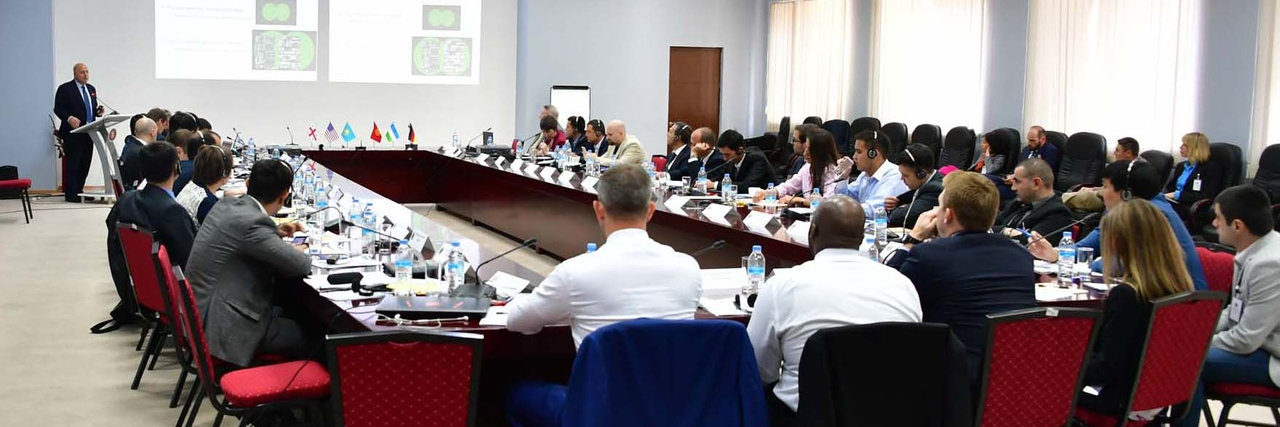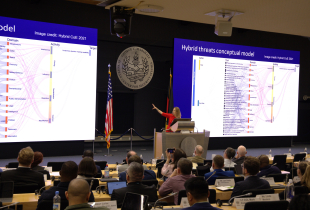
Marshall Center Cyber Program Hosts Central Asia Regional Information Assurance Workshop
By Andrew Brinkman
College of International and Security Studies
George C. Marshall European Center for Security Studies
TBILISI, Republic of Georgia (Oct. 17, 2018) – The George C. Marshall European Center for Security Studies Program on Cyber Security led a cybersecurity workshop for Central Asian states, in partnership with the Georgian Ministry of Internal Affairs Academy in Tbilisi, Republic of Georgia from Oct. 15 to 17.
More than forty participants, and eight faculty and expert speakers from eight countries attended this workshop.
The “Central Asia Regional Combating Cyber Crimes and Information Assurance Workshop: Protecting Cyberspace for Citizens, Cross Border Cooperation for Sharing Best Practices,” brought together top national cyber security, criminal investigators and law enforcement officials from Canada, the Czech Republic, Kazakhstan, Kyrgyzstan, Uzbekistan, along with Georgian leaders and U.S. Department of Justice, Department of State, and Federal Bureau of Investigation agents.
The Marshall Center is a 25-year U.S. Department of Defense and German Ministry of Defense security studies institute. It is a leading transatlantic defense educational institution. Operating since 1993 as a German-American partnership, this unique defense educational institution offers post-graduate courses, conferences, research programs, foreign area studies and language courses to civilian and military professionals from more than 154 countries.
As the workshop’s title suggested, best practices were indeed shared and lines of communication and new friendships were established, said Professor Philip Lark, director and founder of the Program on Cyber Security Studies at the Marshall Center.
The Marshall Center's PCSS provides senior government officials with the professional knowledge and capabilities to deal with transnational cyber security challenges. The program is tailored for senior officials responsible for developing or influencing cyber legislation, policies, or practices. The Marshall Center developed PCSS as a comprehensive program to explore the increasing domestic, international and transnational challenges in cyber security.
Lark added that participants shared best practices for investigating financial cybercrimes and capacity-building in the effort of a whole-of-government approach and whole-of-society collaboration to counter cyber-enabled crimes and emerging cyber threats. Top national experts stressed the need for international cooperation and the development and training of cyber investigators as keys for success.
"This is a unique opportunity to advance national cybersecurity strategy development, investigative procedures, increasing cyber security awareness and information sharing capabilities among law enforcement practitioners from Central Asia,” said Lark. “This is an important regional workshop for the German-American partnership. Our Georgian co-host provided an excellent environment that contributed to a meaningful exchange of ideas and best practices amongst all participants."
The Marshall Center’s Program on Cyber Security Studies at the Marshall Center has been conducting various cyber and information awareness events in Central Asian states for many years. This event continues a multi-year engagement to address whole-of-nation challenges in cyberspace.
